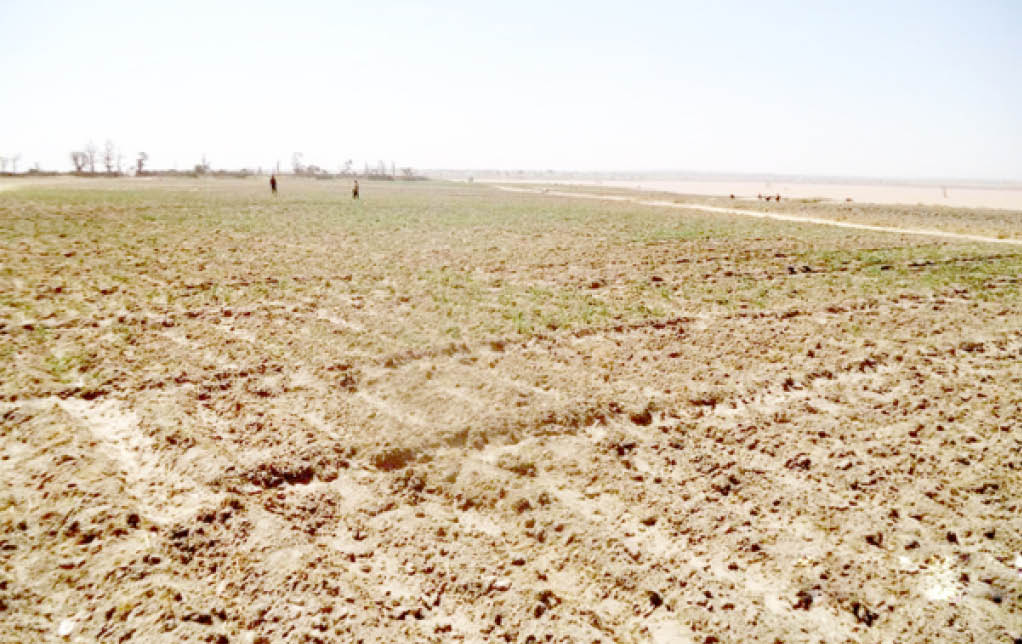Katsina farmers strategise to beat wet season production challenges
As the wet season farming is about to take off, farmers in Katsina State are adopting varied strategies in order to survive the growing challenges confronting agricultural production across the country. With the current economic hardships, which have triggered high cost of inputs and labour affecting dry season production, farmers have been exploring various options […]

one of the farms in katsina
As the wet season farming is about to take off, farmers in Katsina State are adopting varied strategies in order to survive the growing challenges confronting agricultural production across the country.
With the current economic hardships, which have triggered high cost of inputs and labour affecting dry season production, farmers have been exploring various options to ensure hitch free wet season farming.
Although insecurity remains a major threat for farmers across many communities, they have commenced preparation through farm clearing and purchase of necessary inputs for their production.
The month of May has over the years been a period of quick planting of especially rice when rainfall begins early.
Native doctor, 2 others arrested over killing of student in Edo
Alleged $30bn loot: First News apologises to Gbajabiamila as editor resigns
Aminu Tukur a farmer at Maska, in Funtua LGA of the state, said many farmers have already cleared their farms waiting for the right amount of rainfall to plant their crops.
“Farm clearance was done right after the Ramadan fasting, we are now gearing up to plant rice immediately after rain starts in earnest. There are two rice varieties that we plant at this period and hopefully harvest them in 110 days.”
This early harvest allows the farmers to have resources to sustain the production of other crops during the season.
Tukur added that besides rice, they are also preparing their yam farms, as the popularity of the tuber crop is growing.
Although Katsina is not on the map of the states producing yam, farmers in the state have found a particular variety of the crop that is productive, which is harvested early and will therefore put more money in their pockets.
“You know we have our peculiar yam variety that we harvest in August; most of its farmers have already taken advantage of the early rain and prepared its ridges,” Aminu Tukur said.
When it comes to inputs like fertiliser and seeds, farmers no longer wait for government to intervene as such intervention rarely gets to them.
A fertiliser dealer in Funtua, Dan’asabe Garba, said considering the growing cost of fertiliser and other inputs, many of the farmers have purchased their inputs early enough; ahead of the rainfall.
“Farmers this year have learned their lessons against delaying the purchase of inputs. Indorama Urea rose to N42,000 before it came down to N28,000 and now it has again risen to N35,000. The farmers took advantage of the high cost of maize to raise money for their fertiliser needs,” Dan’asabe said.
He added that unstable foreign exchange was the major cause of input inflation in the country, which also made farming difficult during the dry season production, and necessitated different approaches for the wet season.
Abdullahi Sabitu, a farmer and grains merchant, said for government to close up the deficit in food deficiency, there was need for it to massively subsidise fertiliser for farmers. “Until government is able to stabilise the situation, the fluctuating prices of inputs the market, will knock many farmers out of production.
“The majority of small-scale farmers spent all their savings on farming; many did it on credit, but they realised little money from their harvest. In order to increase farmers’ productivity, the government should subsidise fertiliser and other inputs massively this year.”
Sabitu further said the only area the government could touch the lives of the common man and at the same time boost the nation’s economy was through agricultural support, subsidies and grants to the real farmers.
Since government support has been dwindling over the years, many farmers have been adopting various strategies to navigate the challenges that confront agricultural production in the country.
